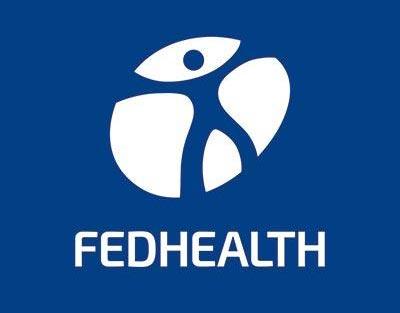
Medical Aid Covers 21 Days Of Addiction Rehabilitation
Will your medical aid cover the 21 days of inpatient addiction rehabilitation and what steps are needed for prior authorisation?
Key Take-Aways
- Prescribed Minimum Benefits (PMBs): Addiction to alcohol or substances is classified as a chronic disease. Therefore, a portion of your treatment will fall under Prescribed Minimum Benefits. This typically includes inpatient detoxification and a 21-day period of rehabilitation.
- Inpatient Treatment: Fedhealth plans cover a portion of the costs associated with inpatient treatment at an accredited rehabilitation centre. The coverage is usually 21 days, and the exact co-payment amount covered can vary depending on your plan.
- Outpatient Support: Some plans might include limited coverage for outpatient rehab programs like individual therapy, support groups, and medication management, often important for continued recovery after inpatient treatment.
- Addiction Programs: Fedhealth might have DSP (designated service provider) partnerships for addiction treatment and mental health support. This doesn’t mean that you can’t choose a better treatment centre. Contact us today to find out about the co-pay amount and how we can help 081-444-7000.
- Pre-authorisation: This is a simple requirement we fulfil on behalf of our Fedhealth addiction rehabilitation patients. This involves us calling Fedhealth and providing them with our GP, psychiatrist and rehab centre codes as well as the ICD-10 codes for your addiction. There is no need to see another doctor or a specialist to provide documentation demonstrating the medical necessity of the treatment.
 Addiction to alcohol and other drugs is a complex disease that often requires professional long-term treatment for patients to attain long-term recovery. As addiction issues continue to affect many South African lives, understanding what your medical aid covers is important.
Addiction to alcohol and other drugs is a complex disease that often requires professional long-term treatment for patients to attain long-term recovery. As addiction issues continue to affect many South African lives, understanding what your medical aid covers is important.
Fedhealth’s Coverage for Addiction Rehabilitation
Your medical aid scheme likely provides coverage for both inpatient and outpatient rehabilitation services. Changes Addiction Rehab assesses each case and will help determine whether inpatient or outpatient rehabilitation is most appropriate for your needs.
Medical aid coverage typically includes access to our detoxification services, individual and group therapy sessions, and specialised inpatient and outpatient treatment programmes aimed at addressing substance abuse and alcohol dependency.
The extent of coverage and the specific treatments included can vary slightly across different medical aid plans. Some plans may offer comprehensive benefits with extended inpatient therapy benefits, while others offer fewer group and individual psychotherapy benefits.
Does Fedhealth Pay for Addiction Rehabilitation?
Medical Aid is committed to ensuring members receive appropriate, high-quality care and works with a network of accredited rehabilitation facilities to fulfil this commitment.
Your medical aid coverage for addiction rehabilitation comes with certain conditions and limitations designed to ensure that members receive the most appropriate and effective treatment. Prior authorisation is typically required for members to access rehabilitation benefits, with Changes Addiction Rehab assessing the medical necessity of the proposed treatment. Additionally, coverage may be subject to specific terms, such as a cap on the number of days for inpatient treatment or a limit on the number of therapy sessions.
Members may also face restrictions regarding the choice of a rehabilitation centre, as Fedhealth partners with specific facilities to provide these services. The type of addiction being treated can also influence coverage, with some behavioural addictions requiring treatment at a psychiatric hospital.
Finding the Right Rehab Center
FedHealth often partners with a network of accredited addiction treatment centres. Changes Addiction Rehab will call your medical aid and pre-authorise on your behalf, finding out precisely what your self-payment will be. It’s a quick process, and we can admit you immediately should your medical aid be in order. Call us anytime on 081-444-7000 for more information and pre-authorisation on your medical aid scheme.
Changes Addiction Rehab has treated hundreds of FedHealth patients; we’re the best rehabilitation centre in Johannesburg. We’re available to discuss any questions you may have. Reach out to us today.
If You Need More Information About Medical Aid Coverage
- LA Health
- Remedi
- Bestmed
- Medscheme
- Momentum
- Discovery
- Multi-Choice
- Compcare
- Genesis
- Medshield
- Gems
- Polmed
- SABC
FAQ: Fedhealth Medical Aid Rehab Cover
Does Fedhealth cover inpatient addiction treatment and detox?
Yes. Fedhealth provides cover for in-hospital detoxification and rehabilitation for substance use disorders under PMB rules, subject to plan limits and pre-authorisation.
How many days of rehab does Fedhealth typically fund?
Most schemes (including Fedhealth) fund up to 21 days of inpatient rehabilitation per year, with up to 3 days for medically supervised detox, depending on your plan option.
Are outpatient counselling or aftercare services covered?
Generally, outpatient counselling and therapy are limited or excluded unless your specific Fedhealth option provides additional benefits beyond PMBs. Check your plan rules and any DSP requirements.
What is required for pre-authorisation with Fedhealth?
Pre-authorisation is mandatory. We’ll submit your practice numbers and ICD-10 codes, confirm availability with the facility, and obtain approval before admission.







